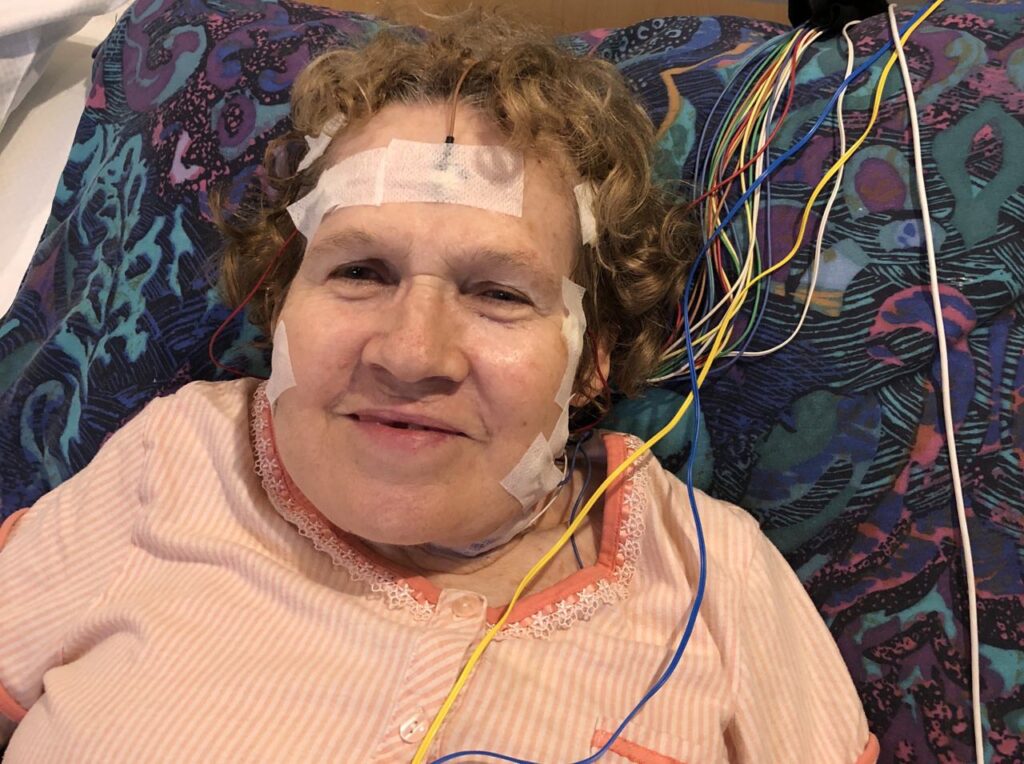
Many Americans bemoaned losing an hour of sleep when Daylight Saving Time began on March 12. So Sleep Awareness Week, March 12-18, is timed to encourage us to prioritize sleep to improve overall health and promote the prevention and management of sleep disorders. According to the National Institutes of Health, sleep is as important for good health as diet and exercise.
Twenty percent of Americans have a sleep disorder with half having Obstructive Sleep Apnea (OSA). In OSA the repetitive pauses in breathing are caused by relaxation of soft tissue in the back of the throat that blocks the passage of air. Central Sleep Apnea (CSA) affects less than one percent of people and occurs when the brain doesn’t send the right signals to muscles that trigger breathing.
Want to subscribe to receive blog updates sign up today!
Although 22 million people are estimated to have OSA, about 80 percent are undiagnosed. Their lack of oxygen comes with a high mortality risk. Sadly, I knew multiple little people who died in their 40s due to undiagnosed sleep apnea.
Until about 20 years ago, I too was undiagnosed. I didn’t know that my excessive daytime sleepiness put me at twice the risk of having a car accident. But I was jolted awake one afternoon after falling asleep at the wheel and my car veering off the road onto the grass. Thankfully, I didn’t hit a power pole or cross the center line into oncoming traffic and avoided being among the 100,000 auto crashes or 1,550 crash-related deaths the National Highway Traffic Safety Administration annually attributes to fatigue.
I had ignored sleep apnea symptoms like loud snoring, waking up with a dry mouth, and feeling as tired as when I went to bed. I forget if I had trouble remembering. Other symptoms didn’t bother me—insomnia, morning headaches, mood or behavior changes, and lack of energy. Other than being middle aged, common risk factors for sleep apnea were absent—allergies, drug use, family history, being a male, obesity, nasal blockages, large neck circumference, sleeping on my back, smoking, and enlarged tonsils or tongue. But failing to address my sleep apnea symptoms also put me at risk for life-threatening conditions like: diabetes; cardiovascular diseases; psychiatric comorbid diseases; cancer; neurological disorders; and brain damage.
Soon after my wake up call, I had a sleep study and was officially diagnosed with severe OSA. I slept overnight in a sleep clinic dotted with sensors that measured my sleep stages, breathing, muscle movement, and oxygen levels. I was prescribed a Continuous Positive Airway Pressure (CPAP) machine with a tube blowing pressurized air into a mask and through my airway to keep it open while I slept.
Adjusting to the CPAP was challenging. However, I was determined to benefit from the health benefits of the device and refused to give up. With the help of a respiratory therapist, I chose a nasal pillow and comfortable headgear. The CPAP came with a compact carry bag making travel easy; airlines have made it a free carry on.
So how well are you sleeping?
You may also want to read:
- “Sleep Apnea.”Cleveland Clinic.November 15, 2022. https://my.clevelandclinic.org/health/diseases/8718-sleep-apnea
- Health Risks of Poor Sleep. https://www.hopkinsmedicine.org/health/wellness-and-prevention/the-dangers-of-uncontrolled-sleep-apnea
- “Ways to Improve CPAP Therapy Compliance for Sleep Apnea Patients.” Reviewed by Pramod Kerkar, M.D., FFARCSI, DA. https://www.epainassist.com/sleep-disorders/ways-to-improve-cpap-therapy-compliance-for-sleep-apnea-patients
- Sleep Awareness Week®. https://nationaltoday.com/sleep-awareness-week/
- For links to my dwarfism memoir trilogy and weekly blog posts, go to my website at https://angelamuirvanetten.com.
